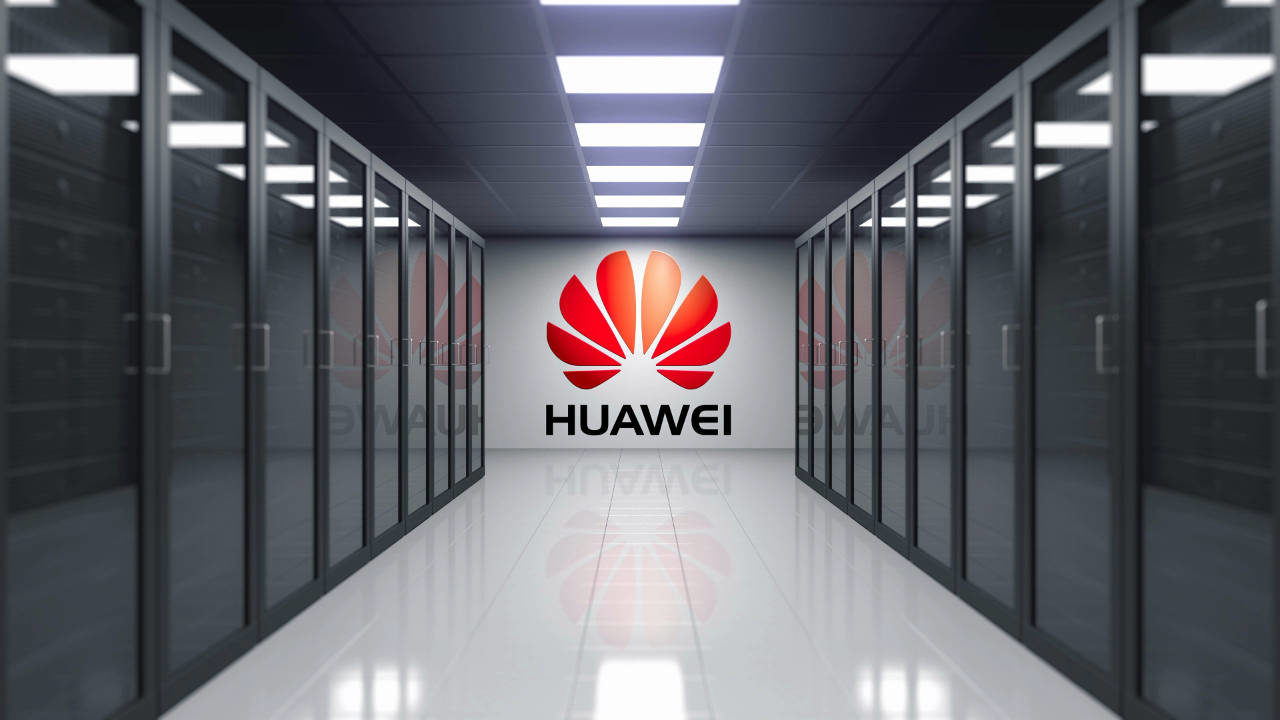August 11, 2021
The aftermath of the arrest – during a transit stop in Vancouver on December 1, 2018 – of Meng Wanzhou, the chief financial officer (CFO) of Huawei, the noted giant Chinese global company, made the world’s top headlines. The Canadian authorities acted on a warrant issued by a New York court seeking her extradition to the United States, to face charges of abetting her company’s trading with Iran. [1] Her continued detention, even after negotiating an $8 million parole, pending her extradition hearings scheduled as far off as January 20, 2020, or 13 months later (in reality, even going farther beyond), raised a wide range of questions. Many were of a serious legal nature, but apparently prompted by serious political motives. Due Process and Certain Petty Maneuvers The fussy questions regarding due process included: Why was she treated like a criminal without a trial and was locked up while being initially denied parole by a Vancouver prosecutor who refused to accept a bail by her husband because he was not a Canadian citizen?! Even after she was finally paroled, she continued, for some time, to be kept under house arrest in Vancouver wearing leg fetters, as if she had already been convicted a criminal. Later on, although given the freedom to move around, she remained under 7/24 surveillance, enforced in part by a GPS tractor anchored on her left ankle. Meng was to be extradited to the U.S. for trials for her role in abetting her company’s trading with Iran, which was a breach of U.S. policy and law banning trade with Iran. But, this ban was unilateral U.S. policy... August 2, 2021
Nathan Smith. US/China tensions aside, executives at HSBC must be counting their lucky stars. The latest drama in the extradition case against Huawei chief financial officer Meng Wanzhou began in June when a judge in Hong Kong, forced HSBC to release a trove of internal documents to bolster Meng’s claim that the bank knew about Huawei’s links with Iranian subsidiary Skycom. But the documents didn’t create the effect which Meng’s legal team may have wanted. The Canadian judge presiding over Meng’s extradition case to the US chose to keep the documents under seal which means they cannot be used in the case. Extradition can be a drawn-out process at the best of times, and Meng’s case been sluggish for more than two and a half years. Outside of some legal sector media outlets, the case has largely dropped off the international radar. So, some quick context of her case is in order. A history of trust On December 1, 2018, Canadian officials, acting at the request of the US Justice Department, arrested Meng Wanzhou at the Vancouver International Airport. Meng’s arrest was made pursuant to an indictment which charged Huawei, its US subsidiary Skycom Tech and Meng with various counts of bank fraud, wire fraud, violation of US sanctions against Iran, related conspiracy charges and a healthy topping of obstruction of justice for good measure. The US alleges Meng committed bank fraud in the US when she misled an HSBC executive at a 2013 meeting in Hong Kong in which she showed a PowerPoint presentation that described Skycom as “controllable” by Huawei in an effort to cover up prohibited... July 22, 2021
Banks have an obligation to act as gatekeepers to the European financial world. The obligations are codified in EU legislation as well as in laws and regulations in the respective Member States. Heavy fines of hundreds of millions of euros have been issued to non-compliant Financial Institutions (FI). Not only banks, but also individual responsible bank employees can be criminally investigated in case of non-compliance. Where Know Your Client (KYC) information has been insufficiently gathered, or incorrectly reported to the proper authorities, high-level banking officials can choose the tactical defense of not having been informed by lower-level employees, thus deflecting a personal knowledge of the bank’s shortcoming. Aside from the EU Directives and national legislation, global banks such as Goldman Sachs and HSBC pride themselves on “going the extra mile” combating money laundering and terrorist financing by agreeing on KYC principles, training staff of individual banks and promoting research (www.wolfsberg-principles.com). The principles agreed to by the global banks have no legal status but claiming to act against them would obviously put a participating bank in an awkward position. Thirdly, many countries have implemented “long-arm justice” legislation to combat money laundering or terrorist financing. Recently, China has seen the introduction of such laws. By all means, the champion of long-arm justice is the USA, which has made the mere use of its currency sufficient basis for American jurisdiction, thus covering any transaction in US dollars in any country in the world. The basis of the EU regulations is that FIs not merely go through the motions of KYC by creating paperwork but that an ongoing assessment is made of the... July 14, 2021
US Extra-territorial Jurisdiction Hinges on the Dominance of the US Dollar, So US Global Leverage Will Persist Until the US Dollar Is De-throned The power to print a nation’s currency is one of the greatest powers of any government, but the power to print to the dominant global currency is perhaps the greatest power any government can possess. [1] This immense power is currently in the hands of the US, and it has weaponized the dominance of the US dollar to enforce key elements of its geopolitical policy preferences on the rest of the world. The aggressive use by the US of unilateral secondary sanctions has spurred the adoption of a range of counter-measures by US friends and foes alike in an attempt to blunt the extra-territorial impact of these secondary sanctions. To be effective, however, such counter-measures must be able to shield non-US companies from the severe penalties that the US may impose for non-compliance. As we have seen [2], blocking statutes alone have generally proven to be paper tigers, more political posturing than an effective defense. China may be in a better position to use counter-measures in a more holistic manner to push back against US perceived overuse of sanctions, but this will require a high degree of tactical finesse in order not to have a chilling effect on foreign investment or give rise to other unintended consequences. More fundamentally, unless the dominance of the US dollar in international transactions is eroded, the US will be able maintain its current stranglehold on the global financial system, rendering all counter-measures ineffective. All currencies eventually die or devalue, but the... July 9, 2021
Canadians awoke again last week to headlines about the case of Meng Wanzhou, Huawei’s CFO. Since Meng’s arrest in December 2018, the case has been in and out of court. Many people have followed its progress, but others will have lost track of what it is about or think it doesn’t concern them. The highly distressing discoveries of unmarked graves in former residential schools in recent months has rightly led to national introspection and a collective demand for explanations and answers. The Canadian instinct towards equality and fairness will not rest until these are provided. Canadian values are fundamental, intensely felt and fiercely guarded. These two cases are not comparable in scale, but they both lead Canadians to ask what values are important to them, what they stand for, and what happens when those values are challenged. Meng’s case is simple, despite the impression given by any attempt to follow the arguments and applications being made. The lawyers’ skirmishes involve applications made in satellite cases in England and Hong Kong, witnesses relocating to Macau, allegations against HSBC in South America, business dealings in Iran and allegations of fraud in the United States. Add to this the wealthy individuals involved, multinational companies, media hype and sound bites from Donald Trump, and links to accusations against the two Michaels held in China and we have good ingredients for making a James Bond Movie. In short, Meng is accused of concealing from HSBC in 2013 that Huawei controlled a company doing business in Iran. The United States wants Canada to send Meng there to be tried. In Canada, the case is all... July 7, 2021
Beijing Raises the Stakes with New Anti-Sanctions Law, But Can China’s Counter-measures Succeed Where the EU and Others Have Failed? Wednesday, 7th July 2021. This is the second in a series In 2016, Jack Lew, then serving as US Treasury Secretary, gave a speech in which he discussed the history and evolution of sanctions. After describing the US leadership position in the global financial system as the source of the power of US sanctions, he then issued this warning: The US “must be conscious of the risk that overuse of sanctions could undermine our leadership position within the global economy, and the effectiveness of our sanctions themselves.” He went on to identify several potential costs of overuse of sanctions generally and secondary sanctions specifically: Such measures, Secretary Lew said, can strain diplomatic relations, destabilize elements of the global economy, impose real costs on companies in the US and abroad, and perhaps most importantly, they carry a “risk of retaliation.” [1] China Enters (and Escalates) the Sanctions Battle With the adoption of its new Anti-Sanctions Law by the National People’s Congress Standing Committee (NPCSC) on June 10, China has demonstrated that it is fully prepared to retaliate against what it perceives as US sanctions overreach, confirming the prescience of Secretary Lew’s warning. NPCSC Chairman Li Zhanshu is reported to have told lawmakers that the new law shows that China will never relinquish its legitimate rights and interests. “The Chinese government and people will resolutely counter various sanctions and interference,” he said.[2] A Hong Kong-based legal scholar was even more direct, noting, “Cooperation is the best option but the U.S.... Upcoming Events
Recent Past Events
















